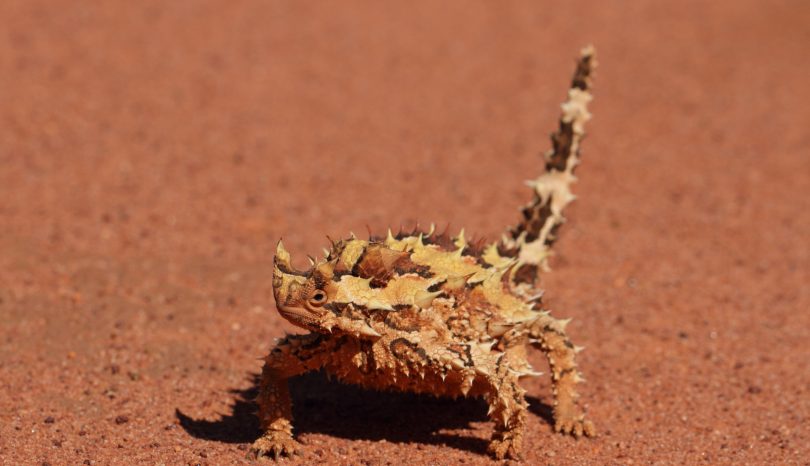Mammals and Reptiles:
Mammal and Reptile surveys on Desert Discovery were initiated by Clive Crouch in the year 2000. His legacy continues with the work of the mammal and reptile team, consisting of a group of general volunteers, experienced volunteers, early career ecologists, and retirees.
 The primary focus of the team is to undertake presence surveys of mammals and reptiles throughout a number of sites for the duration of Desert Discovery expeditions. With appropriate permits and animal ethics approval, survey methods generally include trap and release using; pitfall traps, funnel traps, Elliott traps, Crouch box traps, harp traps, undertaking active searches and recording incidental sightings.
The primary focus of the team is to undertake presence surveys of mammals and reptiles throughout a number of sites for the duration of Desert Discovery expeditions. With appropriate permits and animal ethics approval, survey methods generally include trap and release using; pitfall traps, funnel traps, Elliott traps, Crouch box traps, harp traps, undertaking active searches and recording incidental sightings.
 During past survey expeditions, some species have been recorded outside their current known distributions. Data obtained by the group is submitted to the state department and relevant local Traditional Owner groups.
During past survey expeditions, some species have been recorded outside their current known distributions. Data obtained by the group is submitted to the state department and relevant local Traditional Owner groups.
Working with traditional owner groups is a priority for the mammal and reptile team, allowing for valuable knowledge exchange between Traditional Owners and Desert Discovery participants. Such exchanges may include; tracking skills, survey methods, stories and other cultural exchanges. The team often run activities with local school groups who participate in expeditions.
Bilbies and Great Desert Skinks:
The Mammal and Reptile team incorporated Bilby and Great Desert Skink (GDS) surveys into their survey efforts in 2014. Surveys include a 4 hectare area (2 hectares for Bilbies and 2 hectares for GDS) searched for signs of Bilby and GDS (tracks, burrows and scats). The presence of other fauna such as predators (Cats, Foxes and Dingoes), other mammals and Bustards are also recorded. Data is provided to the National Bilby recovery team and state department.
The Mammal and Reptile team aims to:
- Confirm the presence of known mammals and reptiles in remote areas.
- Extend the recorded distributions of identified species.
- Record state and federally listed threatened species.
- Provide a record of findings to relevant local Traditional Owner groups and state departments.
- Undertake knowledge exchange with Traditional Owners and Desert Discovery participants.
- Involve local school groups and provide educational programs on expeditions.
- Support early career ecologists to attend expeditions.
- Involve local and expert ecologists in the planning and surveying of mammals and reptiles on Desert Discovery expeditions.
Marsupial Moles
Desert Discovery added moles to our research program in 2004 and have used trenching and predator scat collection as the means to establishing their presence in project areas. Subsequent to 2004, our marsupial mole work has been done in conjunction with Dr Joe Benshemesh, a principal researcher in this species in Australia. Trench data is supplied to Joe for analysis.
